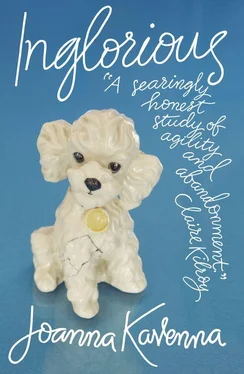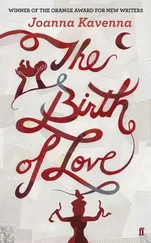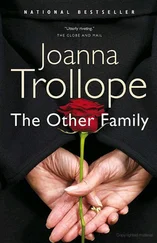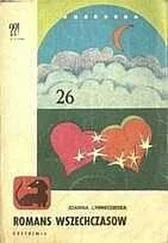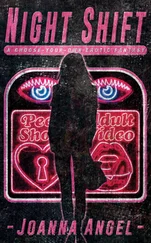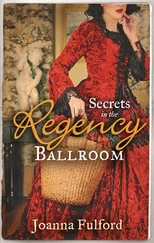Judy and Will’s house was a large farmhouse made of slate. Ivy creeping around the windows. When Rosa had walked up the drive she found a sign by a gate, saying ‘ULF’S FARM’. There was a low hedge, and over the hedge Rosa saw a garden, a large tree, a swing dangling from a branch. The gate creaked loudly as she pushed it open, and the curtains twitched in a first-floor window. She waded through the puddles on the path, and knocked briskly on the door. There was a scramble of children and dogs and adults and the door opened. Among the array of images, features, hands coming towards her, she distinguished Will, beaming broadly, half of his face covered in a ginger beard and his hair, also ginger, standing up in patchy clumps. Judy was looming behind, plumper than before, ruddy-cheeked. Still the same long blonde hair, gathered today in a wide plait. A big radiant face. Both were wearing mud-stained trousers, vast woolly jumpers and dirty wellington boots. There were dogs barking and jumping up, drooling on Rosa’s hands as she tried to pat them.
Judy grappled through the dogs and seized Rosa in a hug. Then she thrust her dramatically away and said: ‘My God, Rosa, you look so thin.’
Will, who was kissing Rosa on each cheek, rustling his beard against her skin, stood back too and eyed her silently. There was a slight pause, then Rosa shrugged.
‘Yes yes, I lost some weight, by accident rather than hunger strike,’ she said, trying to make a joke of it. She was suddenly aware how tired she was. Now she felt dizzy, and put a hand on the wall. She had forgotten to eat on the train. She had forgotten even to drink; she had sat in the carriage sniffing the smell of coffee and hadn’t drunk a drop. This abstinence was clearly having an impact on her hosts. Judy was staring at Rosa as if something awful had just happened, as if Rosa was actually naked, or covered in dung. Well, of course spiritually I am, thought Rosa, but is it now so obvious? Judy looked at Will. Will looked back at Judy. All you’ve heard is true, Rosa wanted to say. It’s me! The one they call crazy and sad. I’ve come here precisely for those reasons. Would I really lug myself all the way up here, in the middle of October, having failed to come and see you in the years you’ve been up here, if I was anything else? A crise, evidently! A minor crise! What were they expecting of her anyway, she wondered? They all stood around, and while they stood Rosa glanced up the hall. There were coats and hats hanging on pegs. There was a dog bouncing around by Rosa’s knees, a small yappy dog, Rosa couldn’t think what breed it was. And there were two larger dogs, something like collies with pointed faces, barking by the door. The animals were all fine, shaking their coats, while the humans were standing stock still, poised on the brink of gaucheness.
Striving to wrench things back, seeing as she was still in the porch and already the mood had shifted, Rosa turned to Judy and said: ‘Well you look wonderful.’
‘I’m so sorry,’ said Judy, blushing slightly, or was it just her ruddy glow, Rosa thought. ‘I didn’t mean to be rude. It’s lovely to see you. Come in, come in.’
A few things came to mind. Rosa, tall and thin, dressed in old jeans and a grey felt coat. Overburdened with bags and another sort of weight, failing to understand how frothy and ephemeral things are. Judy, large, rotund moreover, happy, dressed in mud-stained clothes. She and Will were both pretty splendid. That was quite the word for them, the rough and ready pair of them, standing in their practical garb. Eyeing her. Friendly, but inquisitive. Definitely observant. She could imagine them, later, mulling her over. ‘Terrible, she looks terrible.’ ‘Oh, quite terrible.’ ‘Oh, terrible.’ ‘Poor her.’ ‘Poor poor her.’ Or perhaps they were insincere, and later they would string her up with the thick cord of their condemnation. ‘Presumptuous as anything.’ ‘Fancy coming up here.’ ‘Desperate.’ ‘You’re so right, darling. Desperate.’ But she thought they were sincere after all. Now there was a subtle transition. Will gave Rosa a hug. ‘I think you look great,’ he said. ‘We’ll feed you up.’
That made her baulk a bit, but she was glad they were so rust-coloured, mud-coated, glowing. They looked like a different breed, that breed of country people who walk all day in fields or ride around on horses. She admired them for the girth and firmness of their legs, the strength in their arms. Their bodies were tested daily. They were fit, happy, fecund; they had birthed several children. Rosa could hear a couple of them crying in the bowels of the house. Will glanced towards the door. He put a long arm round Rosa, his hand flat like a spatula on her back, and guided her along a whitewashed hall. ‘Have I disturbed you in the middle of something?’ Rosa asked.
Judy laughed, boisterously. ‘Rosa, we’re always in the middle of something. But come in, come in, it’s wonderful you came.’
It was bonhomie, simple and reviving. They had all recovered from the opening, and now Rosa was being bonhomied along the hall and into the living room. There they stood for a moment, while Rosa felt the warmth of the room. There were lots of red cushions and red curtains and an orange sofa and some bright red rugs. The walls were decked with paintings and photographs of the children, of Judy and Will, of Lakeland landscapes. The mantelpiece was a domestic shrine, scattered with homemade birthday cards, big numbers painted on the front. HAPPY BIRTHDAY BABY BOY! YOU ARE THREE!!!!! TWO TODAY WHAT A BIG GIRL! There were photos of christenings and baptisms, ‘in the village church,’ said Will, as she stared at them. There were pot plants everywhere. The dogs each had a cushion. Even the dogs had a sense of purpose, thought Rosa. It made her smile. There was the small brown mutt busy gnawing a plastic cat and the big white mutt eating a discarded shoe, and the other one sniffing something, all of them devoted to a specific end. There was a fire burning in the grate.
‘Would you like tea?’ said Will, as Judy sat on the sofa, arranging herself on several cushions, emanating joy.
‘Do you have coffee?’ asked Rosa. She sank into the beckoning folds of a large red armchair. Her head was pounding and her lips were dry. Despite the warmth of the room, she was nervous. That creeping sense of being anticipated, she thought, of discussions having preceded you. It was inelegant and she tried to stop it. She was trying to appear relaxed, resting her hand on the table.
Will was a robust man. He looked as if he spent his days chopping wood. He was shaking his head, flexing the muscles of his neck. ‘I’m afraid we don’t. Judy gave up coffee when she was having the babies, and I did too, for support. So now we just don’t keep it. But tea? We have some rooibos and some camomile. Probably some Earl Grey somewhere.’
‘Earl Grey would be lovely,’ Rosa said with a tight smile. And she was thinking they were a pair of super saintly swine. Even coffee banished! They would live a thousand years. There was a wail from upstairs, a baby’s cry. For a heavy woman, Judy was swift to move. She sprang up, saying, ‘So sorry, Rosa, I’ll have to get this. The other two are fine; Samuel and Leila are lovely. But Eliza has been very tricky. Very ill at ease. We’re worried it’s because she’s the third. She’s had so much less attention than the others had. My mother says it can make them very relaxed, they don’t feel the nervous eye of the parent upon them. But poor Eliza is struggling.’
‘Can I help at all?’ asked Rosa, knowing that she couldn’t.
Judy smiled, ‘Oh no, of course not. I’d love you to meet them a little later, when they’ve had their baths and the nanny has gone. But I’ll just go and see what she’s up to,’ as the wail reached a crescendo.
Читать дальше
